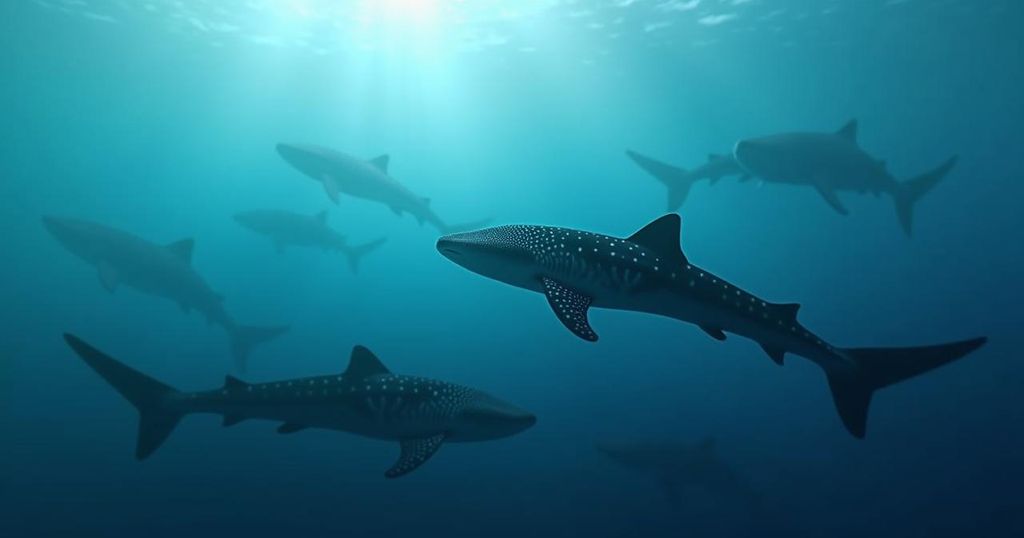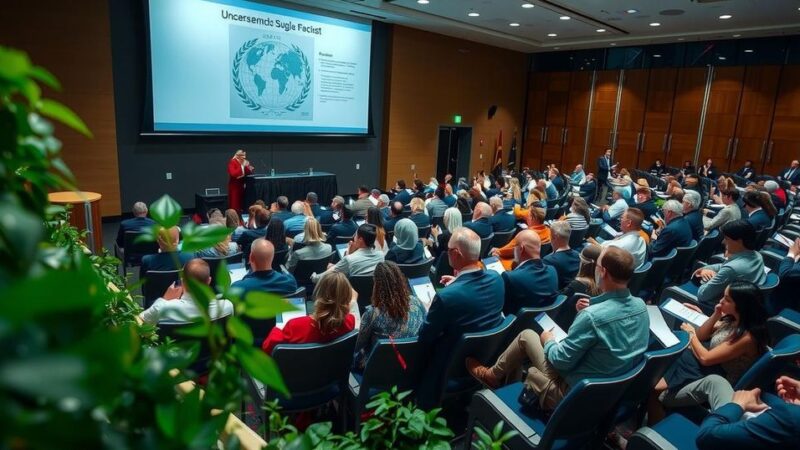A recent study indicates that climate change is increasing the risk of deadly collisions between endangered whale sharks and large ships. Researchers predict a dramatic increase in the overlap between whale shark habitats and busy shipping routes, with potential consequences for the species’ survival. Under high emissions scenarios, core habitats may reduce by over 50%, emphasizing the urgent need for climate action to protect these vulnerable marine animals.
Recent research indicates that climate change is exacerbating the risk of fatal ship collisions for endangered whale sharks, the largest fish species that can exceed 60 feet in length. Scientists from the University of Southampton and the Marine Biological Association (MBA) warn that warming ocean temperatures are likely to displace these creatures into areas populated by busy shipping lanes. The study published in the journal “Nature Climate Change” forecasts that by the end of the century, the likelihood of whale sharks encountering large vessels could increase by a staggering 15,000 times compared to current rates. According to the lead researcher, Dr. Freya Womersley, habitat shifts for whale sharks are anticipated to be most significant under high emission scenarios, which could result in substantial habitat loss alongside heightened risks of ship strikes. Whale sharks are known for their mobility and adaptability to temperature changes, yet they remain particularly susceptible to the dangers posed by large vessels. The researchers employed satellite-tracking data and climate models to assess whale shark distribution under three potential climate futures, projecting that certain regions could witness over 50% habitat loss by 2100 due to current emission levels, especially within Asian waters. Conversely, under sustainable development scenarios aligned with global warming targets of no more than 2°C, improvements in core habitats were observed in some regions, particularly in Europe. The researcher, Professor David Sims, noted that if efforts to mitigate climate change are successful, the predicted impacts may be less severe. The study ultimately reveals how climate change indirectly threatens highly mobile marine species and underscores the necessity of integrating climate considerations into endangered species management discussions.
Whale sharks, as the largest living fish species, are currently classified as endangered, primarily due to threats such as fishing, habitat loss, and environmental changes. Their ability to move across vast ocean areas makes them sensitive to shifts in their habitat, which are increasingly influenced by climate change. As global temperatures rise, ocean habitats are shifting, influencing marine life distribution and behavior, particularly in relation to human activities such as shipping. Researchers are therefore examining not only the impacts of temperature change but also how alterations in whale shark habitats could lead to increased risks of interactions with commercial shipping, raising concerns about the species’ survival in the face of environmental disruption.
In conclusion, the research underscores a significant relationship between climate change and the increasing risk of ship strikes on whale sharks. As their habitats shift due to rising ocean temperatures, the probability of whale sharks encountering large vessels is projected to surge dramatically, with serious implications for their survival. The study advocates for proactive measures to slow climate change, which could mitigate some of these adverse effects, thereby supporting the conservation of this vulnerable species. Addressing climate change is essential for informing management strategies for endangered marine species, reflecting the urgent need for integrated approaches in conservation efforts.
Original Source: www.fox28spokane.com






